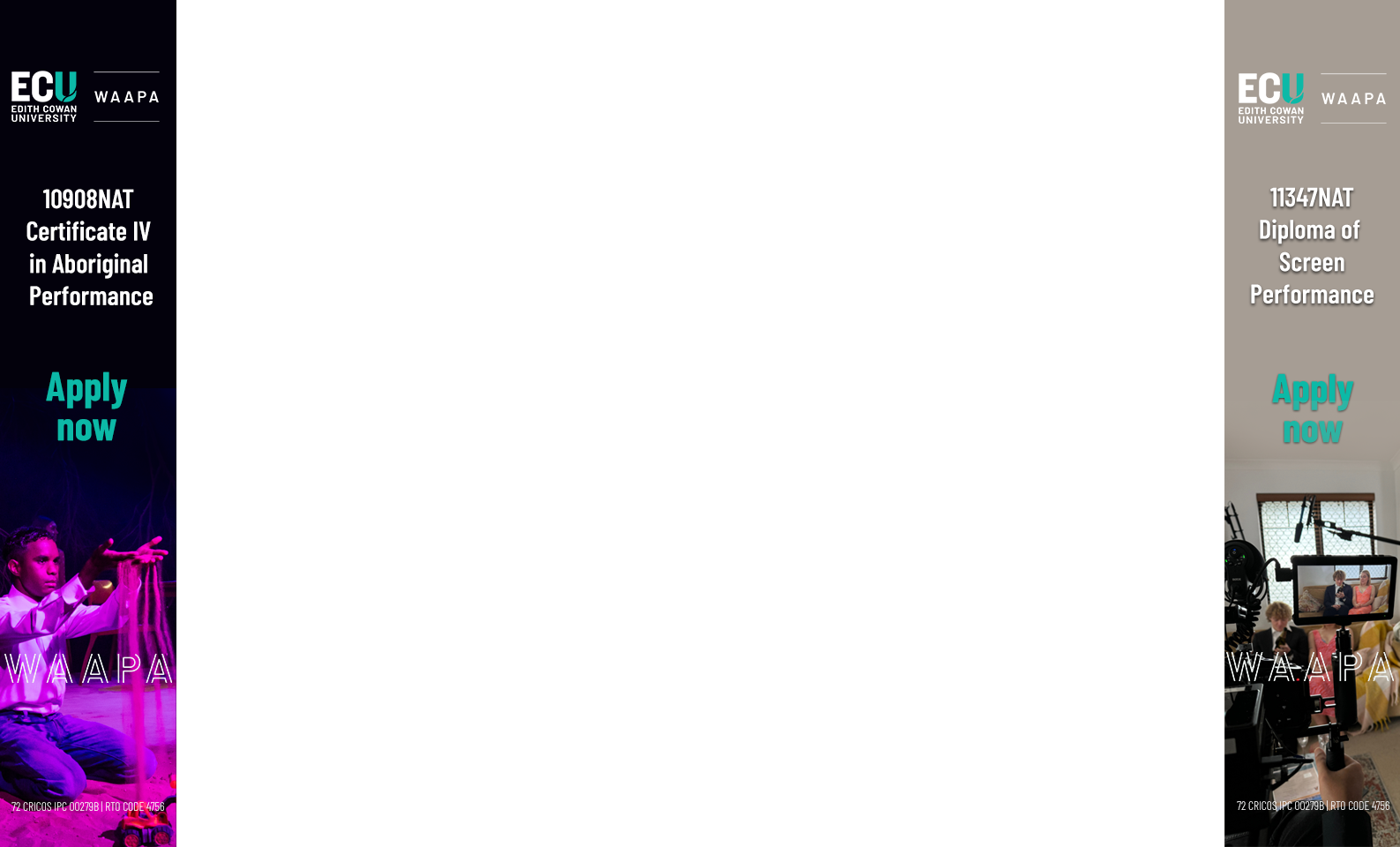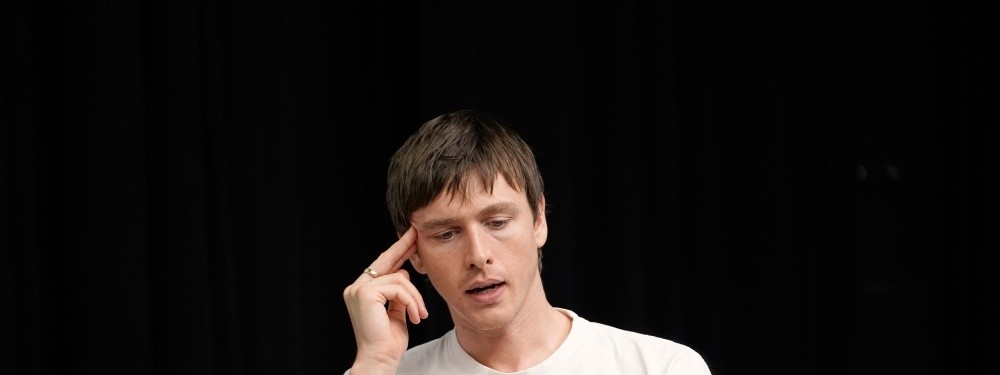by Gill Pringle at San Sebastian Film Festival
As Harris Dickinson’s directorial feature debut Urchin was gestating, the British actor was co-starring with Nicole Kidman on Babygirl, while his producing partner Archie Pearch was working with Margot Robbie on Barbie.
“I remember on Day 20, I was like, ‘so, what was Stanley Kubrick like?’” laughs the actor – and now feature film writer/director – best known for his roles in Triangle of Sadness and Where the Crawdads Sing.
Meanwhile, Urchin producer Archie Pearch had worked as an assistant to producing legend David Heyman on Once Upon a Time…in Hollywood and, of course, Barbie.
Naturally, Robbie and her husband Tom Ackerley’s LuckyChap Entertainment has been a huge success – but Pearch was way too polite to discuss such matters on the set of Barbie.
“We were at Telluride recently and had conversations with Margot and Tom and obviously we really want to collaborate with companies like LuckyChap, but for me personally, it tends to be more set in social situations,” explains Pearch, who went into partnership with Dickinson two years ago under the banner of Devisio Pictures – the pair immediately setting their sights on getting Urchin made.
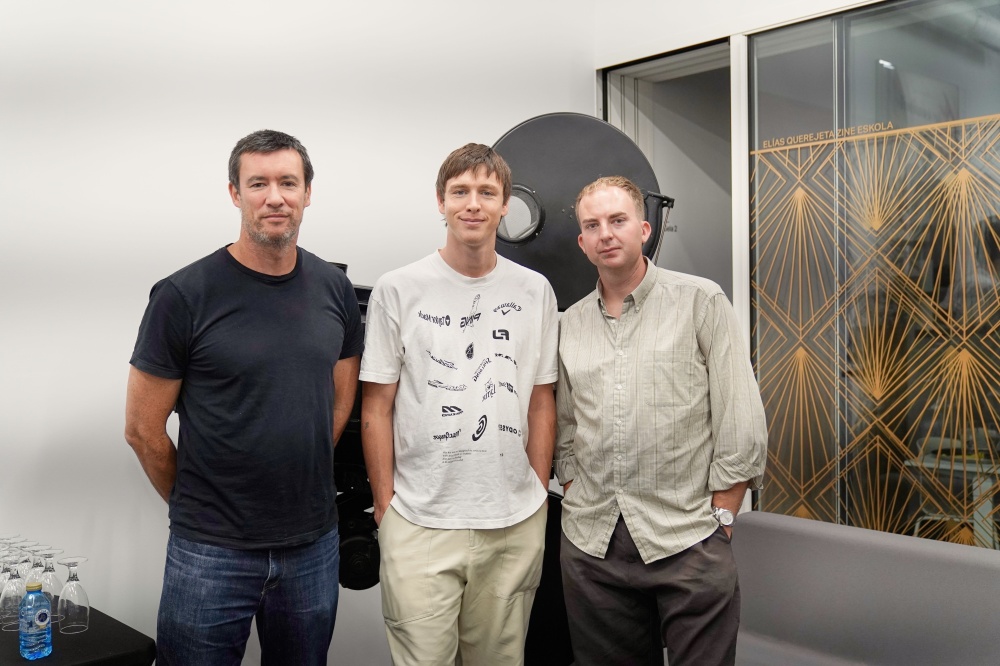
Dickinson’s script for Urchin centred around Mike, a young homeless man struggling to break free from a cycle of self-destruction, living on the streets.
As the camera follows the charming but violence-prone Mike, we see how his life revolves around marginalisation and brief glimmers of hope.
An intimate and moving portrait of human fragility and the possibility of redemption, we long for Mike to turn his life around, although that might be the stuff of fairy tales. Raw and absurd, Urchin is also a story about the strange patterns that keep pulling us back.
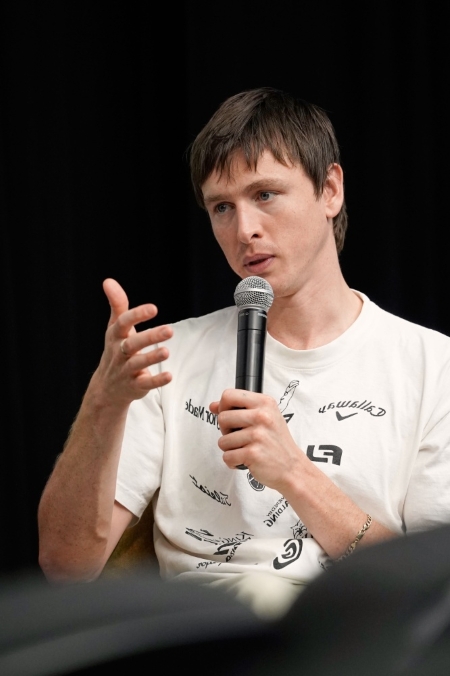
“I think Mike’s story is only a very small insight into the wider picture of homelessness and mental health. I think he’s a specific statistic in a much wider, larger and more complex landscape in London,” explains Dickinson who was moved to write the script during lockdown in London.
“It’s an issue I’m still very much invested in and I feel saddened by it and energised to try and do anything I can, but ultimately – stepping away from the social issues – I think there were people growing up in my life that dealt with various different dependencies and habitual behaviour that kind of fascinated me.
“So, during that first lockdown I felt very confused and annoyed at the government and I didn’t really know how to… I think like a lot of people, there’s issues in the world and we feel a bit helpless about what to do.
“And you can sit there and shout about it online or you can go to a rally or mobilise locally, but I started working with this charity that does a lot of amazing work in East London with individuals on a really specific localised level – like going out on the streets, looking after people and providing support – and then it started to make me think about the wider picture of it and how do we tell a story about the individual and not make it too much about the institution,” says Dickinson.
“But then I just had an amazing two or three years researching that world and we spent a lot of time with people in various fields: prison reform, probation and mental health specialists. It just became something that I had to say – and that’s not me claiming to be an expert; I’m still very much an outsider, but I’ve built a connection to it.”
Mike, he says, is not based on any one individual. “I think his experience is an assimilation of all of the people that I’ve worked with along the way, all of the people that are close to me that have been through similar things. I could only try and tackle it in a way that felt authentic to my understanding of it.”
When looking to raise the film’s $3 million budget, Dickinson’s profile as an actor may have helped to open doors, however, getting sign-off was another matter altogether.
“There was a lot of convincing needed, especially in those early stages where we were looking for financing,” says the novice filmmaker, who flew to Cannes in 2022 with his partner Pearch and Somesuch’s Scott O’Donnell, which also produced Urchin.
“We were there for six days, and it was me, Archie and Scott, and every day we had about six hour-long meetings of me just pitching the film to execs or money people and just doing it over and over and over to people who just didn’t really care or were hungover. At one point, I looked over and there was this guy with sunglasses on and he’s just like – ‘what?’ And sort of woke up.
Eventually – with the financing stitched together like a patchwork quilt – they were able to make the film they wanted, striking gold when Frank Dillane, 34, auditioned for the lead role of Mike.
“Frank has such charm, but he also brought comedy and lightness, which were absolutely essential. Without that, the character could have easily become just a cantankerous, unruly stereotype,” says Dickinson.
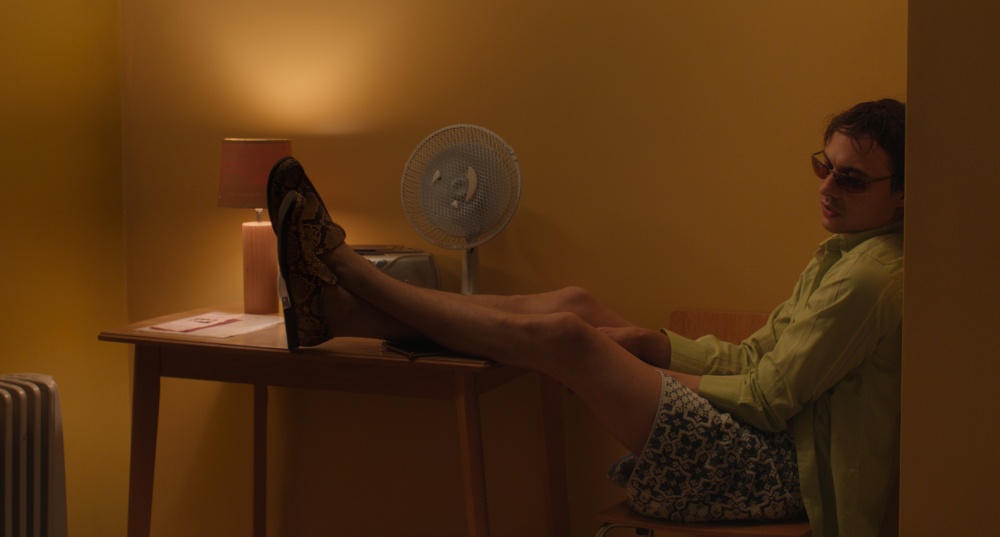
“There was a lot in the writing, but Frank found his own way into the character, making him feel like a real person,” he says of the actor known for his roles as Nick Clark on Fear the Walking Dead, also having played a 16-year-old Tom Riddle in Harry Potter and the Half-Blood Prince.
“From the start, it was clear Frank was the right person for the role. I connected him with a few charities, and he did a lot of his own prep work. I emphasised that understanding the world of homelessness and addiction, even if you can’t fully experience it, would really benefit his performance.”
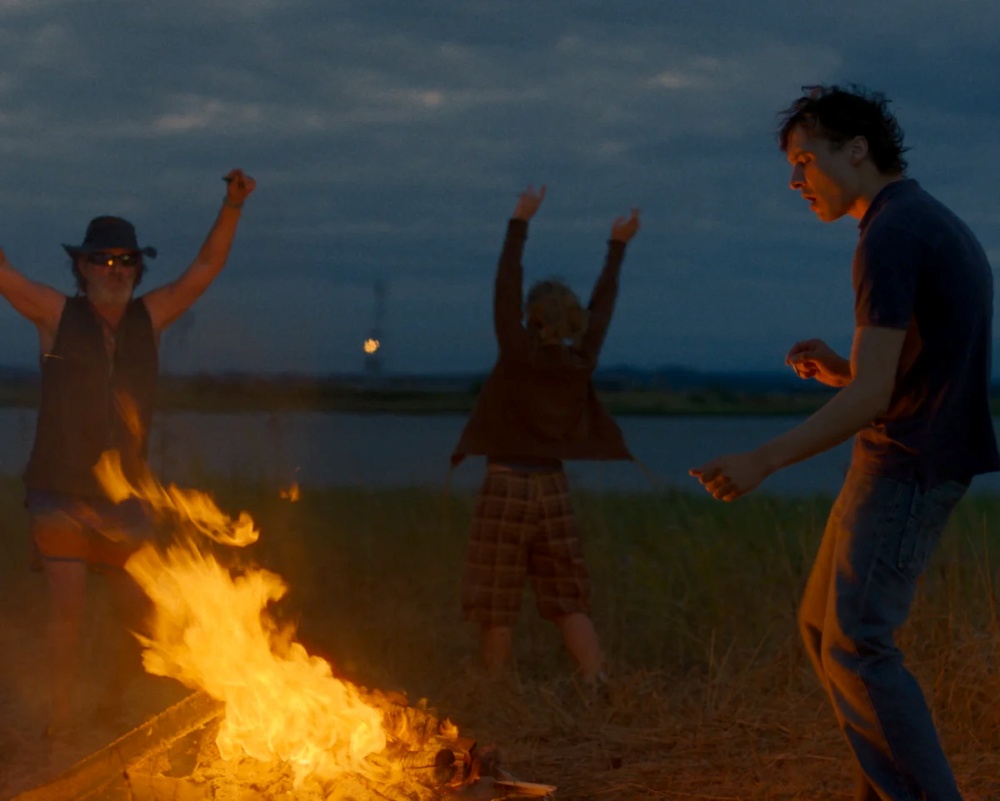
With everything now in place, Urchin was shot on over 38 locations across 28 days. It was a tough shoot during which Dickinson ended up taking on a small role himself after an actor dropped out.
He has nothing but respect for actors like Bradley Cooper, who can take on both directing and acting gigs. “I knew immediately that I wouldn’t be able to act and direct. It was hard even just doing it on a small level for those scenes, and I don’t think I would do it again because there were moments where I was really in two zones.
“I just think it requires too much strict thought and attention. I don’t know if my brain is capable of it, is the honest answer. When I’m at the monitor, I get distracted so easily. I have to have a sheet over me, otherwise I’m like ‘Squirrel! What’s that?’ And then I’m out of it, so trying to do that and act is just not possible,” says Dickinson.
Premiering earlier this year at Cannes, Urchin took home the Un Certain Regard Best Actor for Frank Dillane and the FIPRESCI Prize (Un Certain Regard) for Dickinson.
So, what’s next for Devisio?
“When I finished Urchin, me and my partner went on holiday – and bearing in mind that it had been eight months of prep and then shooting and then post. So, we went away for a week, and she was like: ‘Right, you need to not work now! You’re off for a second.’
“And she caught me writing! I had another idea, and I had to write it down. We went away for seven days and Day Two I was writing again,” laughs Dickinson who has never been busier, cast as John Lennon in Sam Mendez’s four-part biopic of the Beatles.
Urchin will release in Australian cinemas on 26 December 2025
Main image by Iñaki Luis
